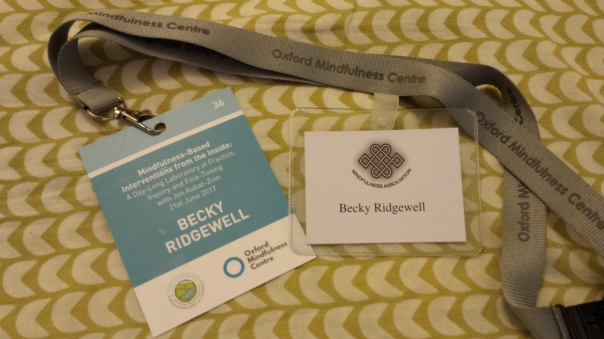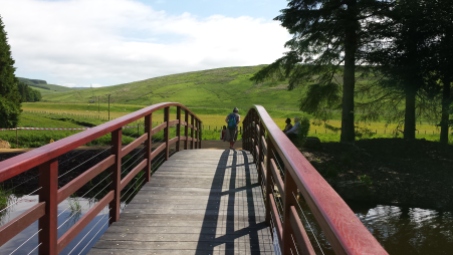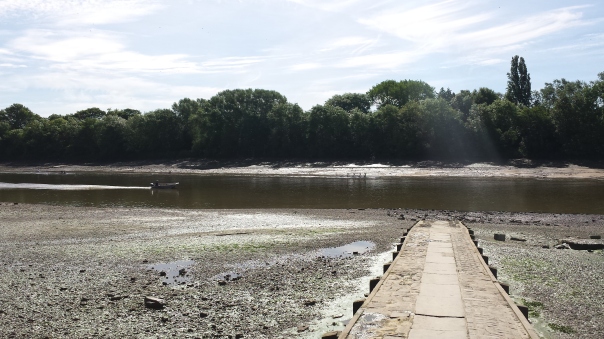I have been looking at the sky as part of my daily mindfulness practice for a couple of years, inspired by an activity described by Vidyamala Burch in her excellent book Mindfulness for Health. I loved the invitation to notice the sky for 5-10 minutes everyday and do it whenever I remember to. So I might be standing on a platform at Tottenham Hale station and notice either blue skies or grey clouds and I notice how the difference between the two can make me feel.
I might do it, on a slower day, from my garden with a cup of tea or on busy work days I look at the sky from the kitchen window in my workplace as I make a herbal tea. The practice is simple – look at the sky, check in with the body, notice the breath, notice any thoughts, go back to noticing the sky, repeat.

The view from my plot!
This morning I made time to visit my allotment which doesn’t happen that often these days. I was late in London at college last night and had awoken as always too late and to much general child induced morning chaos – arguments, some dog poo that had mysteriously made it’s way into the house and needed to be cleared up, confusion about whether the kids had a trip to pizza hut and needed a packed lunch or not, an interview later today and mindfulness-based supervision were all things I had to navigate before 11am.
But squeeze in a trip to my plot I did and after that list of things it felt practically obligatory! I weeded for 20 minutes and then gave myself permission to just sit and watch the sky for 10 minutes before heading home, something again that I rarely do. When I started the practice several years ago I had no idea it would impact so deeply on my life and had no idea about the recent research into awe and the positive affects it can have on our lives. Researchers have found that having a daily dose of awe in our lives can improve our moods, our health, make us more cooperative and less materialistic and even help with critical thinking.
greatergood.berkeley.edu/…/eight_reasons_why_awe_makes_your_life_better
And for me watching the sky gives me that daily dose of awe that we all need in our lives, so too does watching a nature programme on TV – so this is something literally all of us can access in our own way. And it works well with clients who have experienced trauma and who might not yet feel OK to sit with their eyes closed on a cushion, simply going to their local park or even looking out the window at some clouds can be enough to kick start the process of better regulating emotions.
greatergood.berkeley.edu/…/four_awe_inspiring_activities
Today’s total practice time: 30 minutes (including 10 minutes of sky watching)















